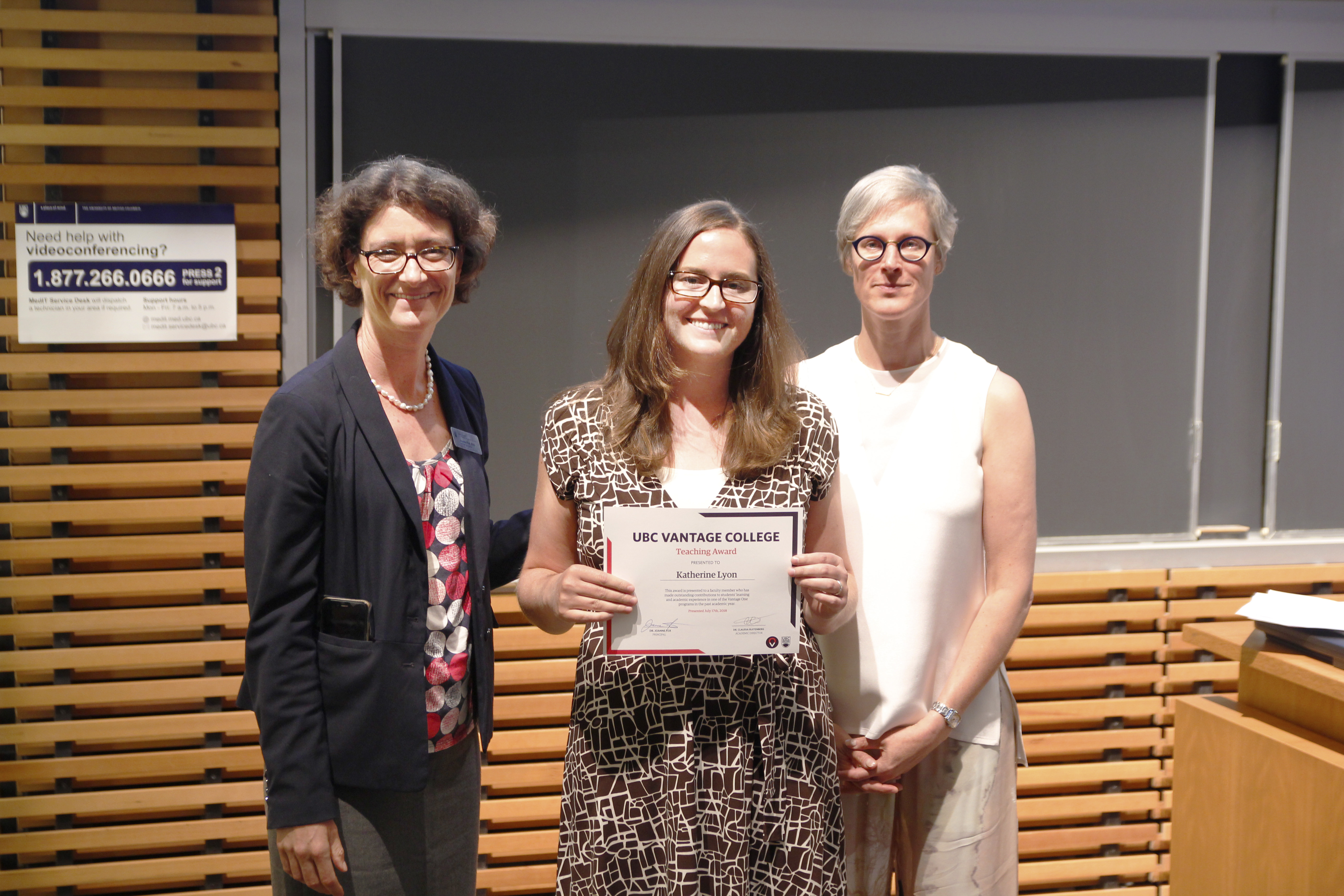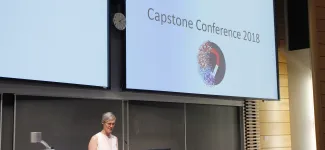words by Claudia Ruitenberg
In 2017/18, Vantage College created two new awards to honour the College’s focus on excellent teaching and educational innovation. The first is the Vantage College Teaching Award, for an individual faculty member who has made outstanding contributions to students’ learning and academic experience in one of the Vantage One programs in the past academic year. The second is the Vantage College Educational Innovation Award, for a group of faculty and/or staff who have carried out a collaborative and innovative project that enhanced students’ learning in one or more of the Vantage One programs in the past academic year.
The winner of the 2018 Vantage College Educational Innovation Award is the team of Neil Leveridge (English for Academic Purposes Lecturer), Kayli Johnson (Chemistry Instructor), and Brian Wilson (Curriculum Manager), for their project, “Team-based virtual reality problem solving to develop 3D spatial orientation and language skills in chemistry.” Vantage One Science students used the virtual reality technology Google Tilt Brush to study valence bond theory with virtual 3D models of molecules. Because the student wearing the VR headset could not see their team members, the students had to communicate chemical concepts in English without being able to rely on gestures.
The winner of the 2018 Vantage College Teaching Award is Sociology Instructor Katherine Lyon. Katherine is an outstanding teacher all around, but the particular contribution that Katherine made to students’ learning and academic experience in the Vantage One Arts program this past year is the introduction of community-based experiential learning into her SOCI 102 at Vantage (Inequality and Social Change). By creating the opportunity for first-year international students to be contributors to a local community organization, Katherine enabled students not only to see real-life contexts for the sociological concepts studied, but also to get to know Vancouver differently and to develop new shared reference points.
 Teaching Award winner Katherine Lyon
Teaching Award winner Katherine Lyon
 Educational Innovation Award winners Kayli Johnson & Brian Wilson
Educational Innovation Award winners Kayli Johnson & Brian Wilson
